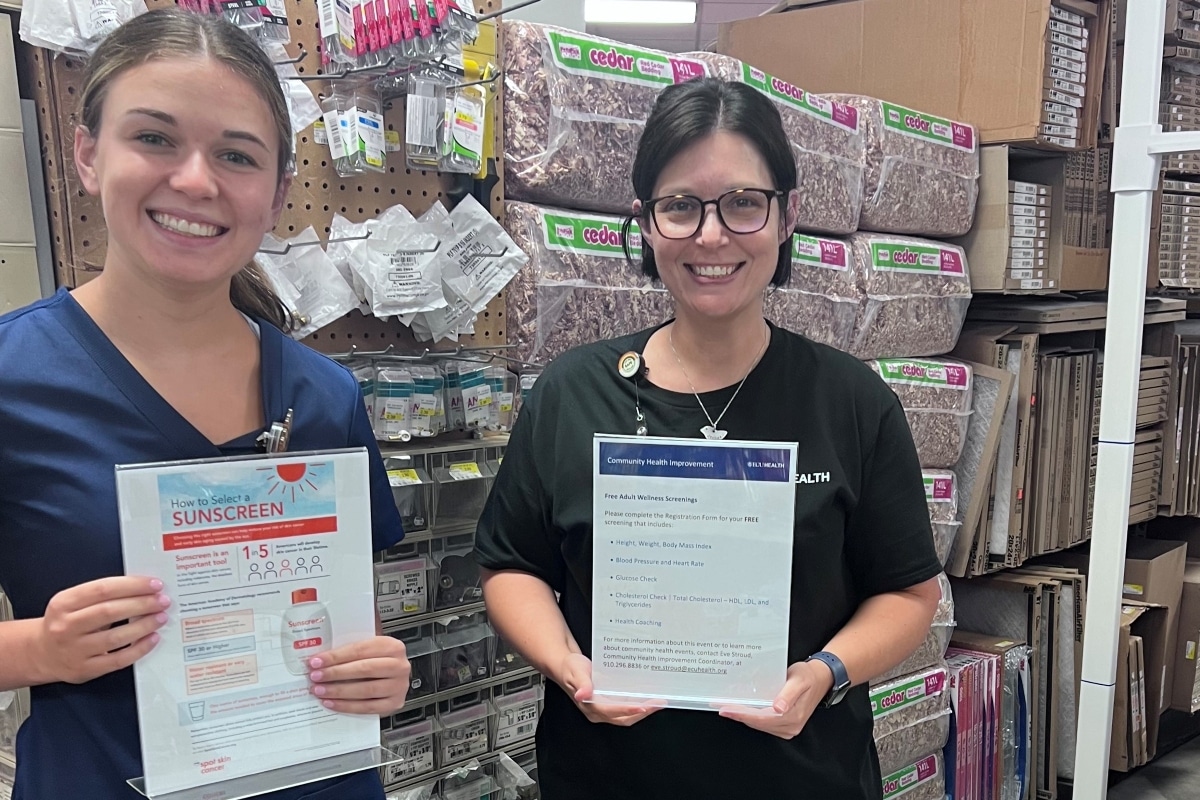It’s not just in October, which serves as Breast Cancer Awareness Month, that you can find the ECU Health Cancer Care Outreach team making connections in the community.
Jennifer Lewis, outreach coordinator for cancer care at ECU Health Medical Center, said she spends much of her time reaching out to community partners, talking to groups in Pitt County and beyond, and connecting with ECU Health patients and families. However, she said, the most rewarding part of her job is the monthly free breast clinic she helps run.
The clinic, for women in Pitt County age 40 and older who are low income and do not have health insurance, provides screening mammograms while sharing other resources available for health care in the area with those participating in the screening.
Lewis said she is grateful to help with the program and is proud of the impact it has on Pitt County.
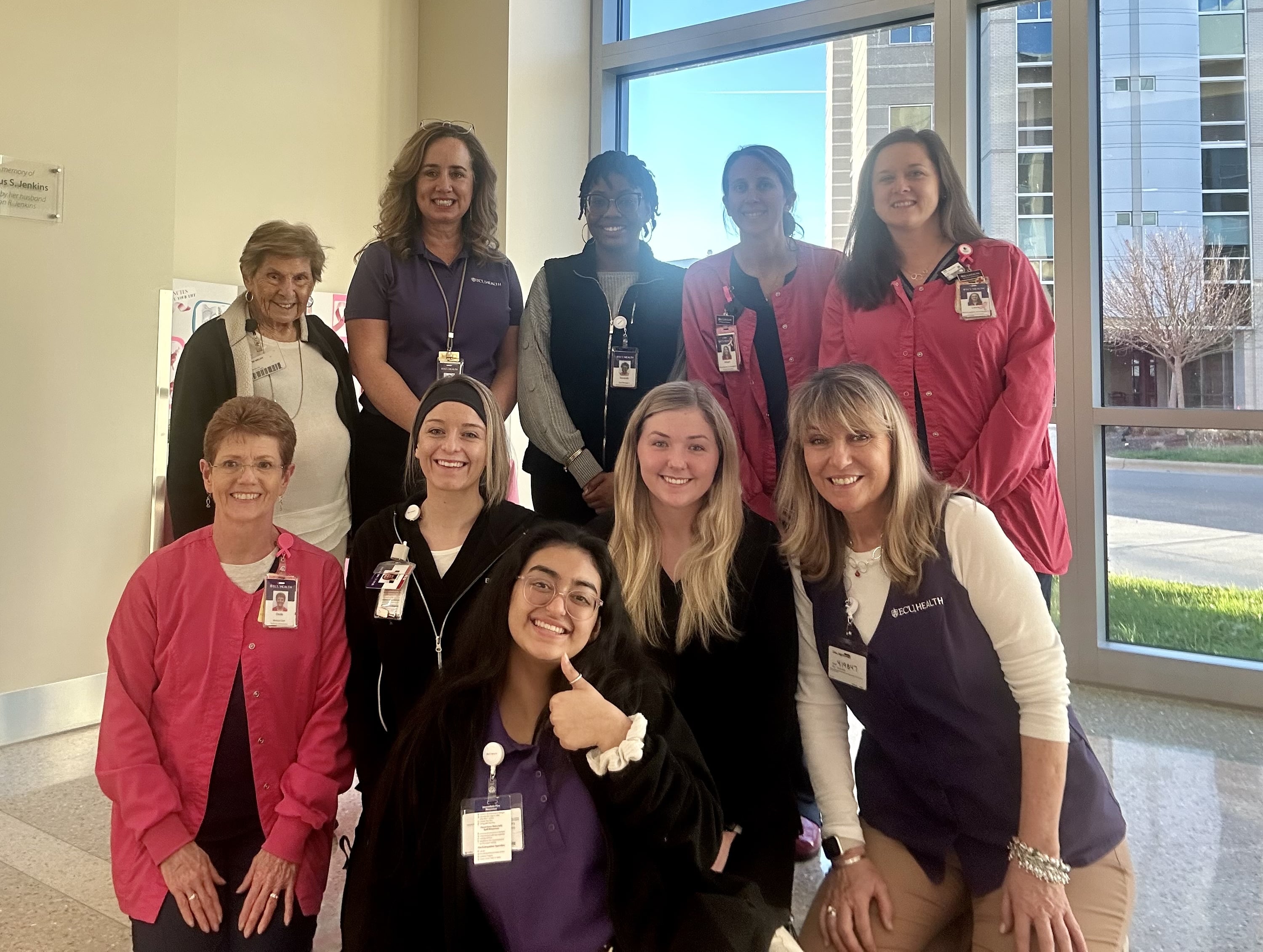
“Patients don’t see a bill because of donations to the Cancer Center and the ECU Health Foundation, and that’s just an amazing thing we get to offer,” Lewis said. “We start with a breast exam by a provider to check for obvious abnormalities. Then they have their 3D mammogram, so they get state of the art imaging just like anyone else would get and they don’t get lesser quality. If they have an area that is of suspicion, we can do a diagnostic mammogram and if the radiologist looks at those images and feels like there’s some more concern about something, next would be an ultrasound of that area of suspicion. The program that we have here pays for all that.”
She shared that while ECU Health Beaufort Hospital and Outer Banks Health currently have their own programs outside of Greenville and Pitt County, other hospitals across ECU Health’s system are working toward establishing the program as well.
Lewis said the partnerships and volunteerism associated with the program make it truly special. She and her team work closely with the Pitt County Health Department to help patients who need further care through the Breast and Cervical Cancer Control Program (BCCCP).
“We can’t do this without our partners, that’s for sure,” Lewis said. “We have such a great working relationship with the Pitt County Health Department and the mammography technicians, Patient Access Services, Language Access, Volunteer Services, radiology and ultrasound, and then our nurse residents who help out all work together so well. After patients are seen during the free clinic day, we have Access East on hand, too, to share information and resources about other services they can get access to. It’s such great teamwork all around that makes these events successful.”
The program sees so many patients throughout the year that they’ve recently added an extra clinic day twice a year, once in February and once in October, to help meet the needs of the community.
While Lewis is frequently in the community talking to groups and spreading awareness, October is especially important. She said she’ll spend much of the month meeting with community groups and in churches discussing risk factors, signs and symptoms and why screenings are important.
“This month is an intentional time set aside to speak about risk factors, family history, and signs and symptoms, because that’s the one time of the year that you can sit back and think, ‘OK, am I having any of these symptoms?’ Or ‘What is my family history? Because last year I didn’t have any, but this year my mother or sister has been diagnosed with it.’ It really creates that intention for people to have that moment sometime during the month,” Lewis said. “Whether it’s an ad on Facebook or hearing someone like me speak, it’s important to have that moment of reflection, remind yourself to get a mammogram and just put that in the forefront of women’s minds.”
She said if there’s one thing she could remind the community, it’s that anyone can be diagnosed with breast cancer. She noted that there are many myths, including that because someone is without family history, is otherwise healthy or is a male, that they cannot develop breast cancer. This is why she said it’s critical for everyone to be aware of signs and symptoms and receive screenings as recommended.
Resources
Breast Screening Events
ECU Health Cancer Care
More Breast Cancer Information
When it comes to skin cancer, it is no secret that early detection can save lives. Increased exposure in the sun’s ultraviolet rays greatly increases the risk for skin cancer, especially among those who work outdoors. That is why Eve Stroud, community health improvement coordinator at ECU Health Duplin Hospital, has been spending her summer in hardware stores around Duplin County providing cancer awareness information and free health screenings as part of the Hardware Store Tour.
Designed to help bring resources to people who may be at elevated risk for skin cancer – particularly those who work outside – the Hardware Store Tour initiative was first launched in 2023. Stroud and her team pair skin cancer education with free wellness screenings for important things like body mass index, blood pressure and glucose/cholesterol checks. In its first year alone, the team completed 37 health screenings and provided skin cancer education to 115 people in just three hardware store visits.
“It is always rewarding to spend time in the community providing helpful health resources to those we serve,” Stroud said. “When it comes to caring for your own health and well-being, information and education can make all the difference. Through initiatives like the Hardware Store Tour, we’re hoping to help people understand their risk factors so they can better manage their health.”
Now in its second year, Stroud and her team are continuing to focus on meeting people where they are in the local community by providing these important resources. The Hardware Store Tour is just one of the many ways ECU Health team members work toward the mission of improving the health and well-being of eastern North Carolina.
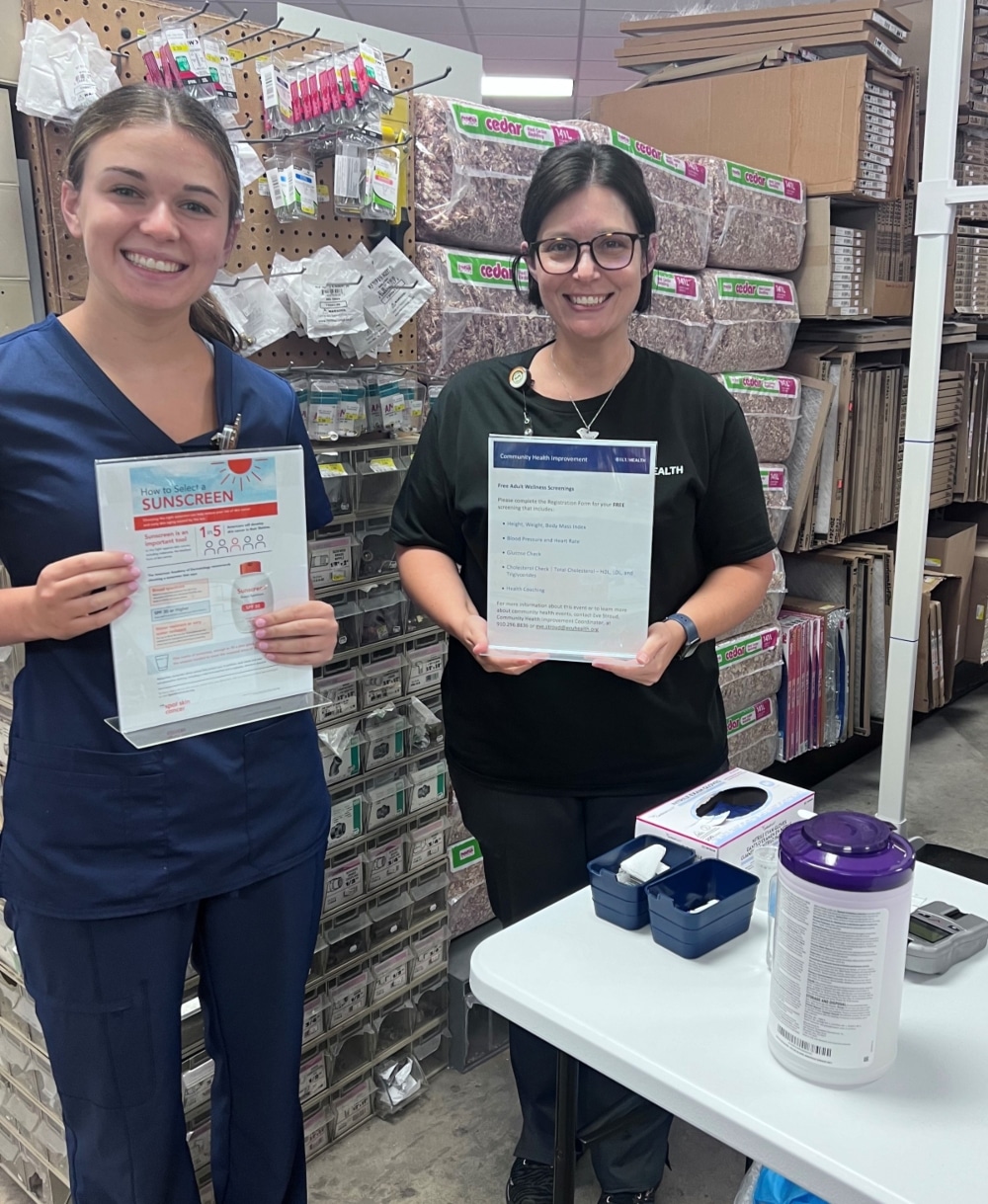
Just being a kid – that’s the goal Camp Hope and Camp Rainbow staff hope to accomplish every summer. Each year ECU Health and the Department of Pediatrics Hematology/Oncology at the Brody School of Medicine make it possible for children with cancer, hemophilia and sickle cell disease to take part in summer camp.
Camp Rainbow is for children with cancer, hemophilia and children who have lost a sibling to one of these diseases, and Camp Hope is for children with sickle cell disease.
“Once the kids get to camp, start participating activities and get to know each other, they leave everything behind and just get to be kids,” said Jacque Sauls, child life specialist at the Pediatric Hematology/Oncology Clinic at ECU Health and the Brody School of Medicine at East Carolina University and director of Camp Hope and Camp Rainbow. “That is a blissful moment for all of the health care staff to be able to watch a child we see in the hospital all the time being a kid and having a great time.”

ECU Health and Brody team members develop camping programs to provide pediatric patients an opportunity to learn more about themselves and their illness, participate in fun activities like swimming, canoeing, archery, crafts, music and drama, all while making life-long friendships with other children with similar conditions and experiences. Over 60 campers from 25 counties in eastern North Carolina came this year.
“These kids are often protected and sheltered a little bit because they can’t do all the things other kids can do because of their illnesses, or they’re afraid of infections or normal camps don’t have the health care they need,” said Sauls. “Here, they can do every camp activity. There are no limits.”
While at camp, children receive 24-hour medical care and close medical monitoring by their ECU Health care teams including physicians, nurses, child life and social workers.
“All of the children take medicine because of their conditions, so when they take it together, they realize, ‘You have to do this just like I do,’ and know they’re not alone,” said Sauls.
The vast majority of camp volunteers and counselors are former campers themselves, having experienced sickle cell, bleeding disorders or cancer. This shared background allows them to form a special connection with the campers, having faced similar challenges, treatments and experiences. These volunteers return to camp to ensure that today’s kids receive the same transformative experience they once did.
“It’s one of the most important things we do at camp because they get to meet children going through the same thing they’re going through or have gone through,” said Sauls. “The kids get to have mentors that have gone what they’ve gone through and are now in college. They get to see that just because you have a chronic illness or have had cancer you can’t do all the things you want to accomplish in life.”
This is true for camp volunteer Daniel Everett, who attended Camp Hope starting in 2017. When he graduated high school in 2021, he decided to volunteer at the camp.
“I have sickle cell myself, and for me as a kid to come to camp was a dream,” Everett said. “It was magical. It was a place I could go that I knew I was going to have fun, and it was a place I felt right at home.”
Now as a counselor, Everett makes the same impact on the new campers.
“It’s really awesome seeing the kids enjoy themselves, especially when they come from a background of pain, they may be going through treatment,” Everett said. “It’s just nice to see them come here to take a breather like, ‘I can be myself,’ because they’re accepted here.”
Everett is beginning college in the fall, and Sauls noted how important it is for the campers to see someone with the same disease as them accomplishing their goals.
One volunteer, however, is not a former patient. Dr. Ashish Khanchandani recently graduated from the Brody School of Medicine at ECU and is beginning his residency in Pediatrics at ECU Health Medical Center. Dr. Khanchandani volunteered during his gap between medical school graduation and residency to make sure the campers have fun and to assist in any medical needs the campers may have.
“The goal of us as volunteers is to make sure the kids can go about their day without any major medical issues,” Dr. Khanchandani said. “It has been fun being like a camp counselor. I’ve done all the activities with my kids like paddle boarding, all while making sure they’re doing it safely.”
Sauls said she was especially grateful for Dr. Khanchandani’s expertise when it comes to his group of campers. His group has Daniel Perez, a camper who survived brain cancer at two years old, losing his vision. Perez was diagnosed with bone cancer in his leg at age nine and underwent chemotherapy. Thanks to the help from Dr. Khanchandani and another camper named Esra Lupton, Perez has been able to participate in every single activity.
“Daniel and Esra met at this camp for the first time, and they go everywhere together,” said Sauls. “Esra takes him from place to place. It’s a friendship you would never be able to make somewhere else.”
Perez, like the other campers, has loved his time at Camp Rainbow. He said coming to camp helps him de-stress and forget about the medical stress going on his day-to-day life.
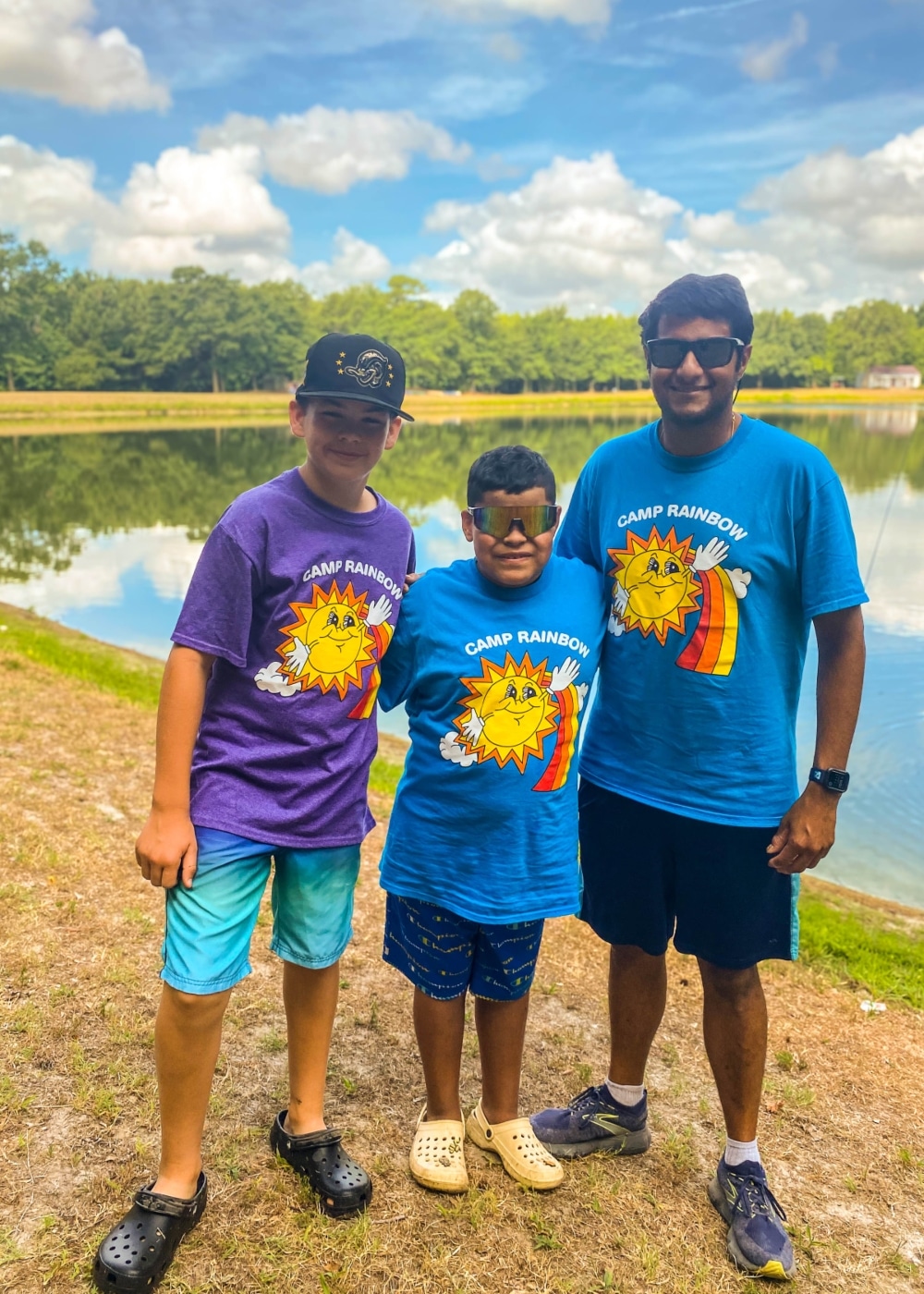
Camp Rainbow and Camp Hope are offered free of charge to children with chronic illnesses and were made possible this year by generous support and donations from the ECU Health Medical & Health Sciences Foundation, Inc., Children’s Miracle Network Hospitals/ECU Health Foundation, the Pamlico Neuse Women’s Coalition, the James and Mamie Richardson Perkins Trust, the Mildred Sheffield Wells Charitable Trust, Riley’s Army, Jaylen’s Nation, Ms. Tammy Thompson, Beau’s Buddies, China Kitchen of Robersonville and other individuals and civic organizations. To learn more, please visit: https://pediatrics.ecu.edu/camp-rainbow/
According to the Centers for Disease Control and Prevention, colorectal cancer is the fourth most common cancer, apart from some kinds of skin cancer.
While colorectal cancer is common, early detection and prevention can be lifesaving. Of those ages 50 to 75, only about 7 out of 10 adults in the United States are up to date with their colorectal cancer screenings. Screenings can be done in a variety of ways, some of which include colonoscopies and fecal testing. When cancer is detected through preventative screenings, treatments can begin earlier to increase the chance for positive outcomes.
No one knows the importance of screenings more so than Stephen Braddy.
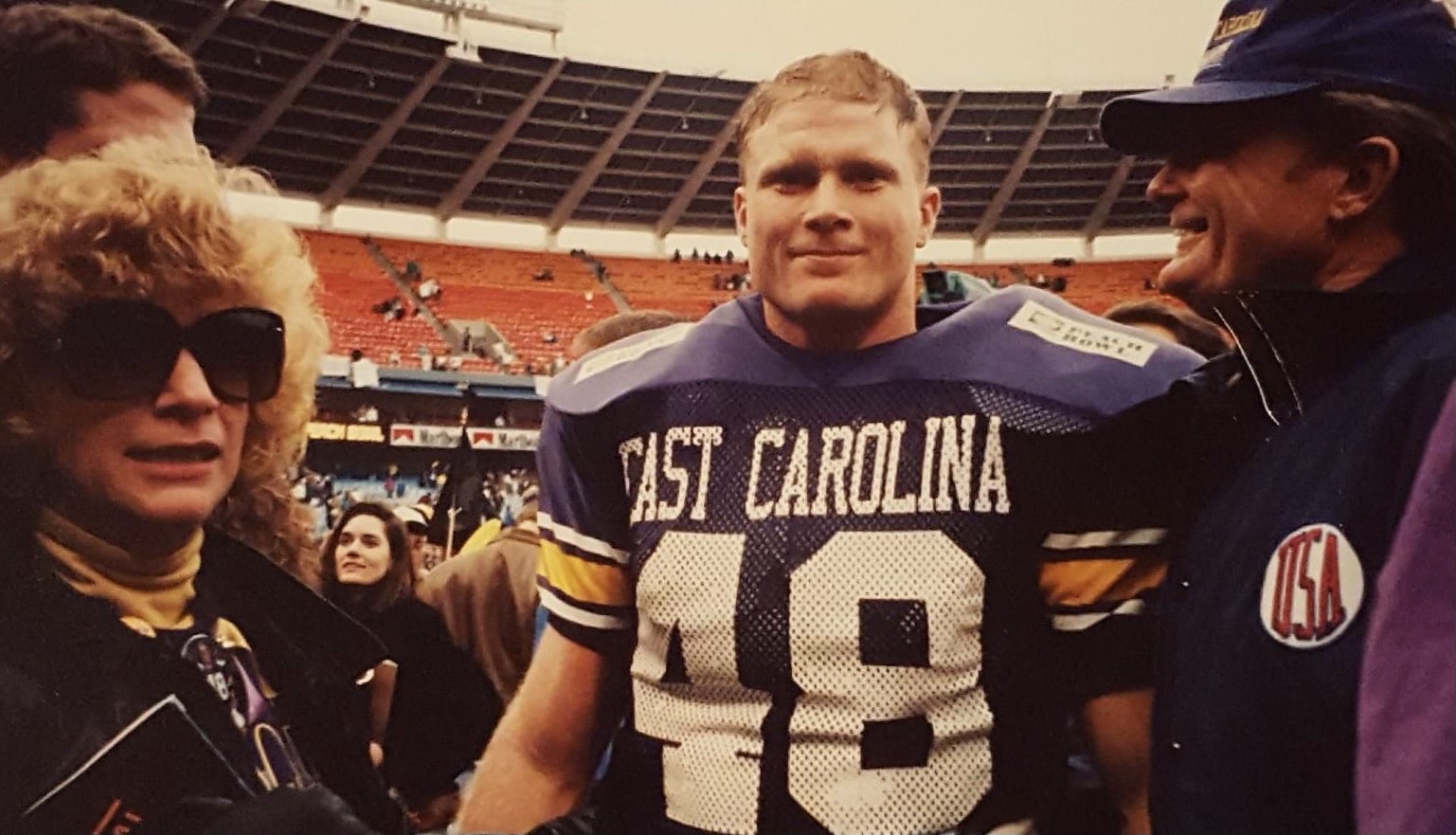
Braddy grew up in eastern North Carolina and played various high school sports before going on to East Carolina University to play football as a linebacker, even playing in the 1992 season that led the Pirates to the Peach Bowl. Now, Braddy is retired and works at Washington Montessori School. He also spends time advocating for the importance of colon cancer screenings.
This cause is important to him because in 2022, after encouragement from his family and friends, he scheduled a colonoscopy at ECU Health which led his doctors to discover a mass in his colon.
“I woke up from the procedure and the doctor comes in with this look on his face and says we’ve got some issues,” says Braddy. “We couldn’t finish the colonoscopy because there was a tumor the size of an egg in the way. I was immediately sent for blood work and scans.”
Braddy was quickly scheduled for surgery on July 12, 2022. During the surgery, doctors removed part of his colon, the mass and 19 lymph nodes, as well as did a colon resection. Following the surgery, he went through four sessions of IV chemotherapy with chemotherapy medication in between.
As a former college football player, Braddy has always been an active person, and he wasn’t going to let treatment keep him from staying active.
“I wanted to show cancer up and beat it,” he says. “Right after my first chemo treatment, I got home and went on a run. I continued to work out through all the sessions.”
In addition to staying active, Braddy also fasted for 68-72 hours around each chemotherapy session. He credits both fasting and staying active as helpful in controlling his nausea and fatigue after treatment.
Since his diagnosis, Braddy has become passionate about talking to others about the importance of colorectal cancer screenings.
“If I could rewind things, I would have no hesitation to get a colonoscopy done so much sooner. The colonoscopy procedure is easy and well-worth the effort it takes to get one. A lot of people, including me, think ‘this will never happen to them.’ Screening could have prevented me from surgery, chemo and bills,” he says.
Regular screenings for colorectal cancer are recommended to begin at age 45. If you’re eligible for a screening and do not have one scheduled, take time during Colorectal Cancer Awareness Month in March to talk to your primary care provider, obstetrician-gynecologist or gastroenterologist about scheduling an appointment.
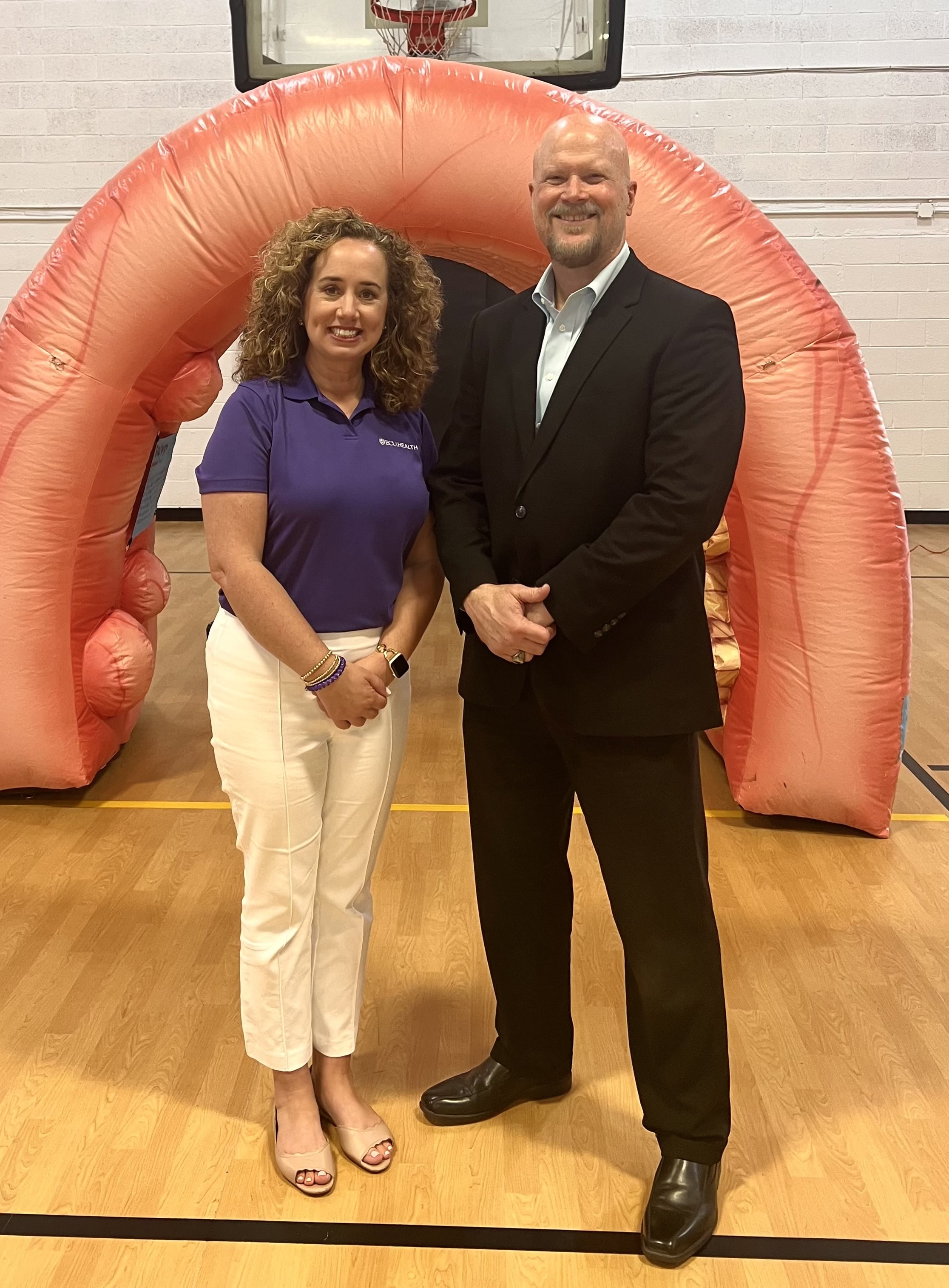
Now, Braddy is cancer-free, and continues to stay on top of his appointments to take preventative measures to stay healthy.
“If there’s one thing I would say to people it would be that just because you feel good doesn’t mean something might not be wrong,” Braddy said. “Colon cancer is very treatable if caught early. If not for yourself, schedule a screening for your family and loved ones.”
Learn more about screening locations and scheduling information on our Reminder page.
NAGS HEAD, N.C. — Jan. 30, 2024 — Outer Banks Health is proud to announce the opening of the Carol S. and Edward D. Cowell, Jr. Cancer Center, a 15,000 square-foot, state-of-the-art facility made possible through the collaboration of Outer Banks Health, ECU Health, Chesapeake Regional Healthcare and the generous support of the Outer Banks community. The center opened its doors to patients on January 29, 2024.
This momentous occasion marks the culmination of years of dedication, perseverance, and community support. Outer Banks Health initiated the endeavor in 2015 with a vision to create a cutting-edge facility that would serve as a beacon of hope and healing for cancer patients on the Outer Banks and the surrounding region.
“The completion of the Cowell Cancer Center was made possible through the unwavering determination of the Outer Banks Health Development Council,” said Ronnie Sloan, FACHE, president of Outer Banks Health. “The council is comprised of dedicated individuals who share a passion for enhancing healthcare in the region and it played a pivotal role in bringing this ambitious project to fruition.”
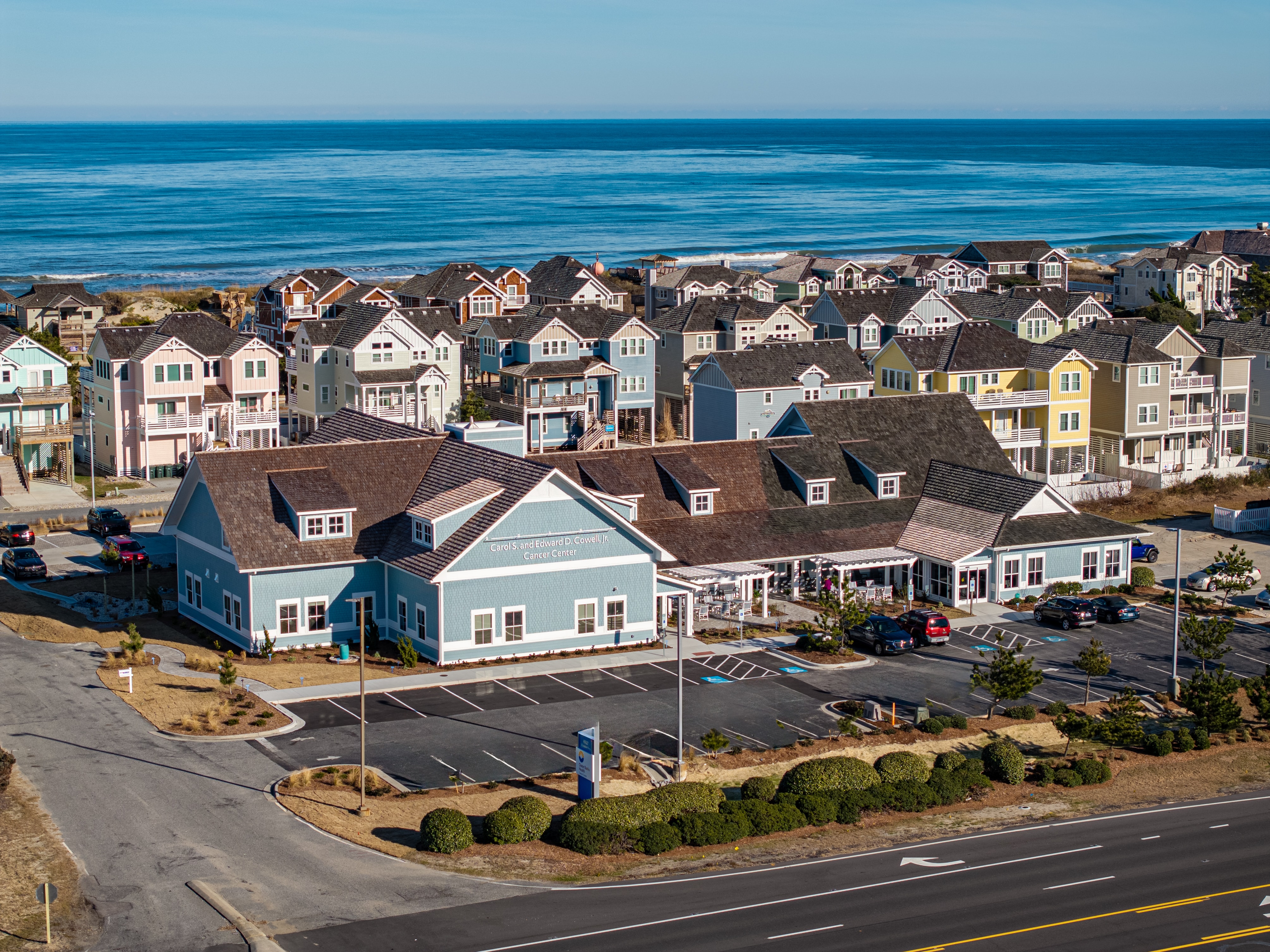
Led by radiation oncologist, Charles Shelton, the new center boasts a dedicated team, including a director, radiation therapists, a radiation nurse, a genetics extender, a physicist, a dosimetrist, pharmacists and pharmacy technicians, LPNs and RNs, lab technicians, navigators, a social worker, a practice manager, and patient access representatives. While the search for a permanent medical oncologist continues, Dr. Michael Spiritos, formerly of Duke Health, has agreed to serve in that capacity on an interim basis along with Dr. John Barton. Katie Caton, FNP is also on staff as a permanent provider.
Of the 1300 critical access hospitals nationwide, Outer Banks Health Hospital is one of only eight accredited by the Commission on Cancer of the American College of Surgeons and is also distinguished as the only one in the country with an accredited breast program. This notable achievement reflects the commitment of Outer Banks Health to maintaining the highest standards of cancer care.
Outer Banks Health remains focused on expanding its list of services and programs to meet the evolving healthcare needs of the community. The organization’s goals include delivering excellent care locally and collaborating with health organizations throughout North Carolina and Virginia to ensure residents and visitors can access the best possible care.
For more information about the Cowell Cancer Center or to inquire about services, visit OuterBanksHealth.org/services/cancer-care or call (252) 449-7272.
NAGS HEAD — About a decade ago, the Outer Banks community suffered higher cancer mortality rates than the state and nation. Not only has that trend reversed, but now for the first time, local cancer patients can receive all their services under one roof.
Over 275 people attended the ribbon-cutting and open house on Jan. 24 for the Carol S. and Edward D. Cowell, Jr. Cancer Center. Located at 4927 S. Croatan Highway in Nags Head, it opens its doors to patients on Jan. 29.
“In 2012, Outer Banks Health didn’t have a cancer services program at all, and we were trailing the state and we were trailing the nation when it came to cancer mortality for all cancers…and we wanted to change that dynamic,” Ronnie Sloan, president of Outer Banks Health, said during brief event remarks.
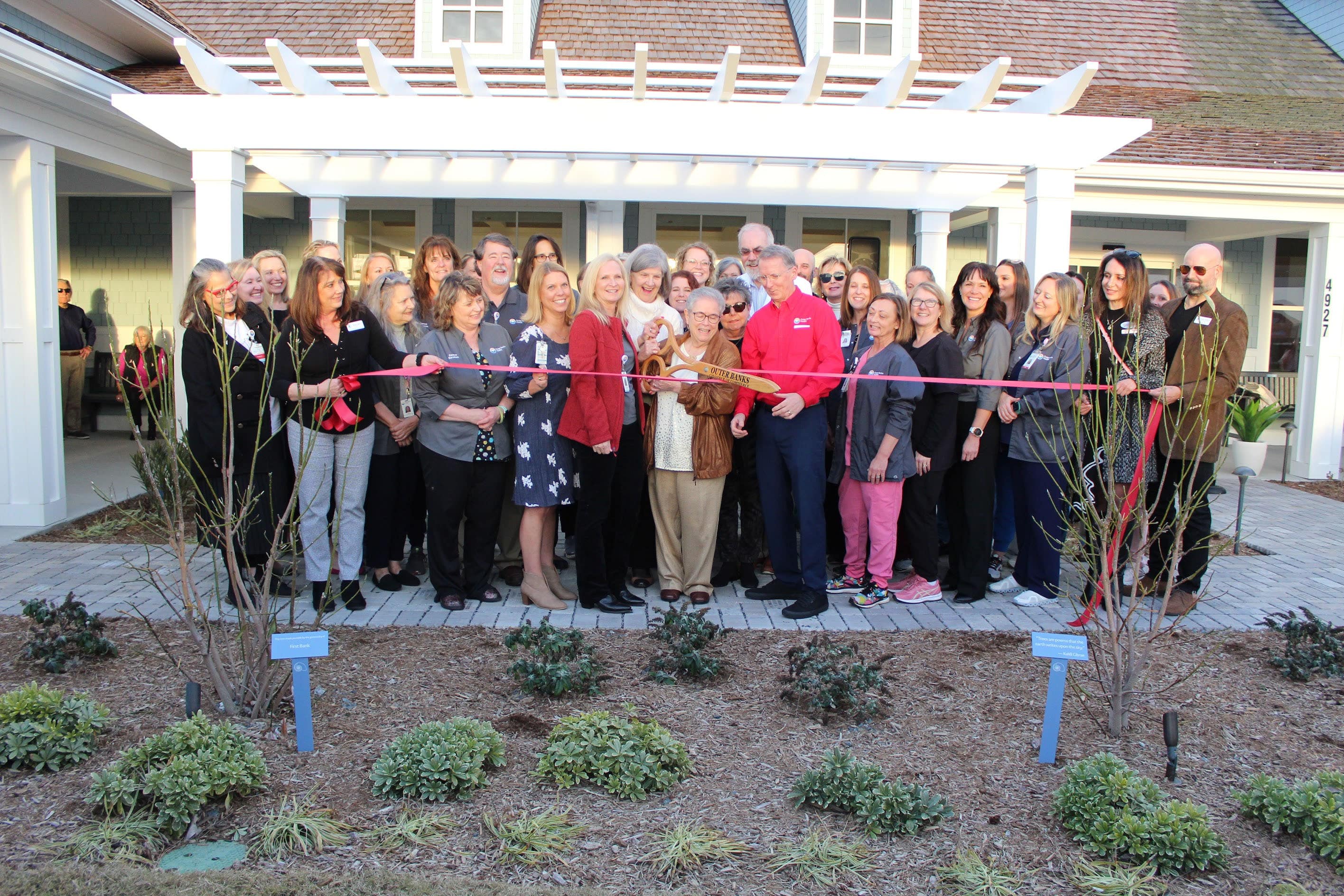
The Outer Banks’ cancer mortality rate was about 6% and 7% higher than the nation and the state, respectively, Sloan said in an interview at the event.
Now, local cancer mortality rates are 6-7% lower than the state and country. The 5-year mortality for breast cancer rate dropped 50% in recent years. Even as cancer mortality rates have steadily declined across the country, “we’ve outpaced that,” Sloan said.
Carol Cowell cut the ribbon at Wednesday’s event. She made the namesake donation to the Carol S. and Edward D. Cowell, Jr. Cancer Center in Nags Head in honor of her late husband and in appreciation of the local community.
Originally from Brooklyn, New York, Cowell said in an interview that she is a cancer survivor who received treatment in Elizabeth City in 2005. The Outer Banks didn’t offer cancer services then, but she was greatly impressed by “the community sense that you got” from local health care professionals and from the community at large.
Fundraising for the center was similarly a community effort.
“This has been just an amazing journey,” Tess Judge said during her event remarks. Judge is chair of the board of directors for Outer Banks Health and co-chaired the fundraising team with Cindy Thornsvard.
Judge said she lost her mother and a son-in-law to cancer, and her daughter-in-law is struggling with it now, “so cancer services and the wonderful team we have here is just so special not only to me but to many.”
Fundraising for the center began during COVID, and their original goal of $4 million was bumped up to $6 million as the costs of building supplies soared.
According to Sloan, nearly $6.5 million has been raised for the center.
“We did that because of all of you, and the tremendous support this community has given to this cancer center,” Judge said.
Stephanie Anderson, a community member who had lost people to cancer, hiked the entire Appalachian Trail last year and raised about $10,000 for the center in the process, said Jennifer Schwartzenberg, director of community outreach and development for Outer Banks Health.
The journey to the center
Outer Banks Health hired its first director of cancer services in 2012, said Sloan, who came aboard in mid-2011.
“In 2013, the board of trustees made a fantastic decision,” Sloan said during his public remarks. They chose to purchase the radiation therapy center that was closing about two miles north of the hospital.
“We didn’t want our community to have to drive two hours each way” for treatment, he said.
Dr. Charles Shelton, a radiation oncologist, began working at Outer Banks Health — then called The Outer Banks Hospital — in 2014, and he leads the cancer services team, Wendy Kelly, marketing director for Outer Banks Health, said in an email.
Shelton set a goal of creating and maintaining an accredited cancer program to reduce the high cancer mortality rate among residents of Dare and Currituck counties, Kelly said.
“It’s been a dream of this organization since 2015 to build a facility that would allow patients to receive the highest-quality, compassionate cancer care all under one roof right here on the Outer Banks,” Kelly said.
Supported by its two partners, ECU Health and Chesapeake Regional Healthcare, along with the generosity of the local community, “that dream is now a reality,” she said.
In 2016, the Commission on Cancer of The American College of Surgeons granted a “Three-Year Accreditation with a Commendation” to The Outer Banks Hospital, which the facility has “proudly maintained” since that time, according to Kelly.
“Additionally, we are one of only eight critical access hospitals in the nation with this accreditation, and the only one nationally to have an accredited breast care program,” she added.
Outer Banks Health is one of 20 critical access hospitals in North Carolina, which have 25 beds or fewer and receive cost-based reimbursement, according to the North Carolina Division of Health and Human Services website.
“Outer Banks Health is an approved Medicare and Medicaid provider and participates with most commercial insurance companies,” Kelly said.
Sloan said that the new “comprehensive center” allows them to offer the “best care possible.”
The entire cancer team can quickly make decisions about patients in consult with one another as “concerns pop up,” and having the dedicated center eliminates the need for patients to go from the first to second floor of the hospital for care, then across the busy bypass for radiation treatment, he said.
Kelly expressed gratitude for all the community support of the center, which included the over 275 people who attended the event on Wednesday.
In addition to Shelton, the cancer services team also includes a director, three radiation therapists, a radiation nurse, a genetics extender, a physicist, a dosimetrist, a licensed practical nurse, 11 registered nurses, a nurse navigator, a financial navigator, a lay navigator, a social worker, a practice manager and three front desk monitors, according to Kelly.
“Our search continues for a permanent medical oncologist, and in the interim Dr. Michael Spiritos, formerly of Duke Health, has agreed to serve in that capacity,” Kelly said in her email. “Additionally, Dr. John Barton serves as a medical oncologist at the center.”
“Congratulations Outer Banks Health on this much-needed and impressive expansion,” Robert DeFazio, chairman of the board of directors for the Outer Banks Chamber of Commerce, said during his event remarks.
Lung cancer is the leading cause of cancer-related death in the United States and is the second most common cancer in both men and women. In eastern North Carolina, where risk factors for the disease are higher than most other areas in the country, screenings are helping save lives.
“We’ve known since the 1990s that using CT scans at a very low dose can actually save lives,” Dr. Mark Bowling, a pulmonologist at ECU Health Medical Center, said. “Now you can do low dose lung cancer screenings once a year if you meet certain criteria.”
The criteria includes: being between the ages of 50 and 80, having a 20-pack smoking year history – which equals a pack a day for 20 years or two packs a day for 10 years – and having no signs or symptoms of lung cancer.
While low dose CT scans are always available across the system for the insured, a grant program allows ECU Health to offer a once-a-month clinic in Greenville for the uninsured who meet the criteria and have received a referral from their provider.
Jennifer Lewis, Cancer Center outreach coordinator at ECU Health Medical Center, helps run the clinic. She said raising awareness for lung cancer screenings is crucial and can lead to early detection.

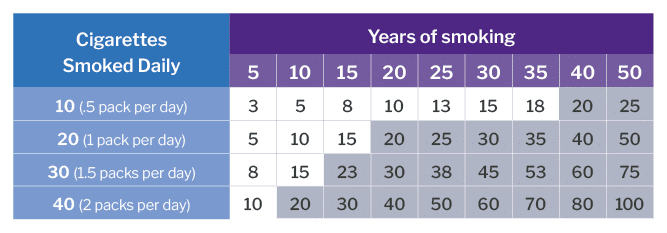
“We’re all aware of mammograms for breast cancer screening and colonoscopies for colon cancer, but not a lot of people realize that there’s a screening for lung cancer,” Lewis said. “If we do find something abnormal, we want to find it in its early stages when the outcomes are better, when there are more options for treatment. With lung cancer being a leading cause of cancer-related death, by the time someone starts manifesting lung cancer symptoms, it’s typically very advanced at that time. You have fewer options and your outcomes aren’t positive so our goal is to find cancer before someone begins to have symptoms.”
Lung cancer symptoms are often non-specific, including shortness of breath, coughing up blood, chest pain and inability to move arms among others.
Lewis said she is also passionate about advocating for patients and helping to eliminate stigmas around any cancer, particularly lung cancer.
“We’re here to let people know, if you smoked, if you still smoke, that doesn’t define who you are as a person. We just want to get you screened,” Lewis said. “We’re not here to judge whether or not you smoke. We’re not here to berate you. We will ask if you’ve been educated about smoking cessation, but that’s not why you’re here. We try to make people feel comfortable and feel valued. Your family still loves you and they still want you around so let’s get you screened and make sure you don’t have anything going on that we need to worry about before it becomes a problem.”
Courtney Johnson, Thoracic Oncology Program coordinator at ECU Health Medical Center, has been with the system for 10 years. First, she worked as an inpatient cancer care nurse in the Eddie and Jo Allison Smith Tower at ECU Health Medical Center for about four years and she said it was a rewarding and special time for her.
That led her to her current role in which she helps track and manage at-risk patients through the screening process. She said the best part of her current job is playing a part in early detection.
Recently, she said her team caught cancer in a patient they’d been taking through screenings for about five years. The screenings showed a change in known nodules for the patient and they were sent to surgery to have the cancer removed. Since it was caught in the extremely early stages, the patient did not have any need for chemotherapy and they’ll just have to follow up with future scans for the patient.
“That’s the greatest thing in this position –I can’t prevent everything, I cannot predict outcomes, I can’t prevent what could be the inevitable, but I have a hand in hopefully early intervention,” Johnson said. “I enjoy spending more time with the preventative side of medicine and hopefully allowing our patients to stay out of the hospital. Instead, they come in and we can be proactive with this rather than having to scramble when the patient is in an advanced stage.”
Johnson also shared that radon exposure is a risk factor for lung cancer. She said radon testing kits are available through North Carolina Department of Health and Human Services.
Resources
The way Dr. Aundrea Oliver met Abby Coderre was, in Dr. Oliver’s words, “fortuitous.”
Abby was a sophomore at East Carolina University when she needed surgery for a mass in her thoracic cavity. Dr. Oliver’s colleague received the call about her situation, but couldn’t perform the diagnostic procedure on her, so Dr. Oliver was asked to step in.
“We just kept going”
At the age of nine, Abby was diagnosed with Crohn’s disease, so she was no stranger to hospitals. As she grew older, however, she began experiencing unusual symptoms.
In high school, she noticed bruising on her legs, but she attributed those to being a dancer. During the summer before her sophomore year, Abby experienced chest pain, but an initial doctor visit diagnosed her with a pulled muscle.
“The muscle relaxer the doctor prescribed didn’t help, so my sister insisted I go to the emergency department,” Abby said. “They did an x-ray and saw my esophagus was pushed off to one side, so they did a CT scan. That’s when they saw the mass in my chest.”
“Her mass was located next to her pulmonary artery and had invaded her pericardium,” Dr. Oliver said. What was supposed to be a four-hour surgery ended up taking Dr. Oliver eight hours to remove as much of the mass from Abby’s body as possible. “We tried to remove the majority of the mass and basically did a full resection.”
As a result, the doctors were able to correctly diagnose her with lymphoma and provide the right treatment.
That decision, Abby said, saved her life: “Who knows if chemo would have been able to get all of it?”
While Dr. Oliver has performed countless surgeries, she said Abby’s story sticks with her. “She was this young, vibrant college student who could have been my daughter, and her case was hard.” Dr. Oliver knew she wanted to do everything she could to help Abby. “We just kept going – we weren’t stopping until we got an answer,” Dr. Oliver said.
Abby’s recovery was, as Dr. Oliver put it, “slightly miraculous.”
“We cut through her phrenic nerve, so she shouldn’t have a voice at all. She should not be able to cough. But she still has great function.” Beyond the physical recovery, Dr. Oliver said it’s been gratifying to see Abby succeed in life: “To see her become this wonderful, exciting, vibrant caring woman and to go from being a happy college student to a mature individual – that gives in a way that I can only hope for is impressive.”
After surgery, Abby completed a two-and-a-half year chemotherapy regimen. Dr. Oliver was impressed by her commitment to her classes and studies while receiving treatment. “I was really proud of her. Whenever someone has to work twice as hard in order to achieve success, there is a greater depth of value in that education.” Dr. Oliver was doubly proud when she found out Abby wanted to be a nurse. “I was over the moon,” Dr. Oliver said. “She let me know she was interested in doing pediatric oncology, and I told her it was a perfect fit, that she was bright enough and she had the people skills to be a great nurse.”
A struggle worth the effort
Although it was challenging, Abby said it was important to her that she remain in school while undergoing treatment. “I needed to have some normalcy in my life,” she said. It became even more challenging when she transitioned to the actual nursing program. “I’d have to get chemo one day, and then the next day I’d be in the hospital as the student nurse and not the patient,” she said. “Then the next day I’d take a test.” As a result, Abby had to study extra hard and often took her notes with her to study during her chemotherapy treatment. She also took classes and tests online, even taking a few while she was in the hospital. “I took one final exam while I was in the ER, but it helped me get my mind off what was happening and gave me something else to focus on.”
Although Abby said she wondered when her cancer journey was going to be over, she advised anyone out there going through the same thing to remember it won’t last forever. “What you’re working for is worth it, no matter how hard the struggle. Just look at the end goal and do anything you can to make it good.”
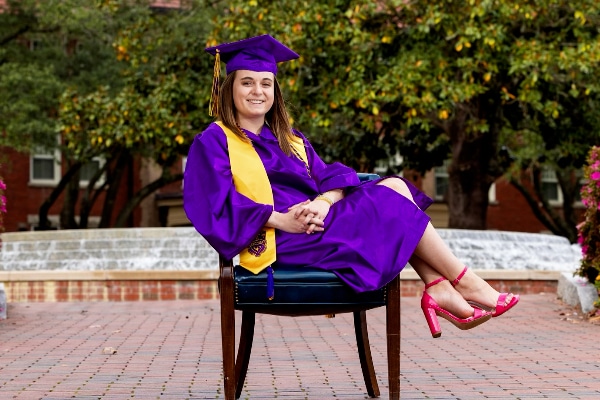
Abby rang the bell to signify the end of her cancer treatment in November 2021, and when she graduated from college, she invited Dr. Oliver to the celebration.
“It’s not common to be invited to a patient’s graduation,” Dr. Oliver admitted. “To have someone years later have an important life event and say, I want you there – that means everything to me.”
Bridging two worlds
Now, Abby is a pediatric nurse working at ECU Health.
“When I first started nursing school, I didn’t want to stay in Greenville,” she shared. “But I really fell in love with the hospital. The team I was treated by was amazing, and I saw the impact they had on me as well as other kids. I couldn’t imagine working anywhere else.”
While their professional lives may not intersect much, Dr. Oliver is thrilled to have Abby as a colleague: “Abby is the perfect container for life, and she’s going to give it to a bunch of little kids who are scared life is going to be taken away from them.”
Coderre agreed that bridging the worlds of patient and nurse gives her a unique perspective that has helped her be a better nurse. “It gave me a lot of empathy toward my patients, because I know what they’re going through. I know what it feels like to be on the other side of things. I wouldn’t be half the nurse I am if I hadn’t been a patient also.”
As for Dr. Oliver, she said the value of her work has been solidified. “It’s easy to feel like what you do doesn’t matter or doesn’t have an impact. If I never have another patient like Abby Coderre – if Abby is my one Abby – then my career is complete. That was the best eight hours I could have ever spent.”
Looking back, Abby said she wouldn’t be here if not for her ECU Health team working together.
“I couldn’t say anything better about ECU Health. It’s amazing, with the best nurses and doctors.” She also holds a special place in her heart for Dr. Oliver: “She is just an amazing human being.”
In her ECU Health profile, Abby wrote that her role model is “Dr. Aundrea Oliver, the most amazing surgeon and person that has ever graced my life by saving my life.”
Greenville, N.C. – ECU Health Medical Center recently earned accreditation from the Commission on Cancer (CoC), a quality program of the American College of Surgeons (ACS). This accreditation means patients will receive comprehensive, personalized care provided by a team of specialists working closely together, access to information on clinical trials and new treatment options, ongoing monitoring of care and lifelong follow-up, mental health support, financial guidance, survivorship care and other long-term services.
“I am proud of our ECU Health team members and physicians who work hard to provide the most advanced cancer care to eastern North Carolina,” said Brian Floyd, president of ECU Health Medical Center and chief operating officer of ECU Health. “Cancer is a terrible disease that has touched most, if not all, of us in some way. As a regional academic medical center, ECU Health Medical Center strives towards excellence in all it does. This accreditation is a testament to the tireless efforts of our cancer care teams, who make a difference in the lives of so many in our region.”
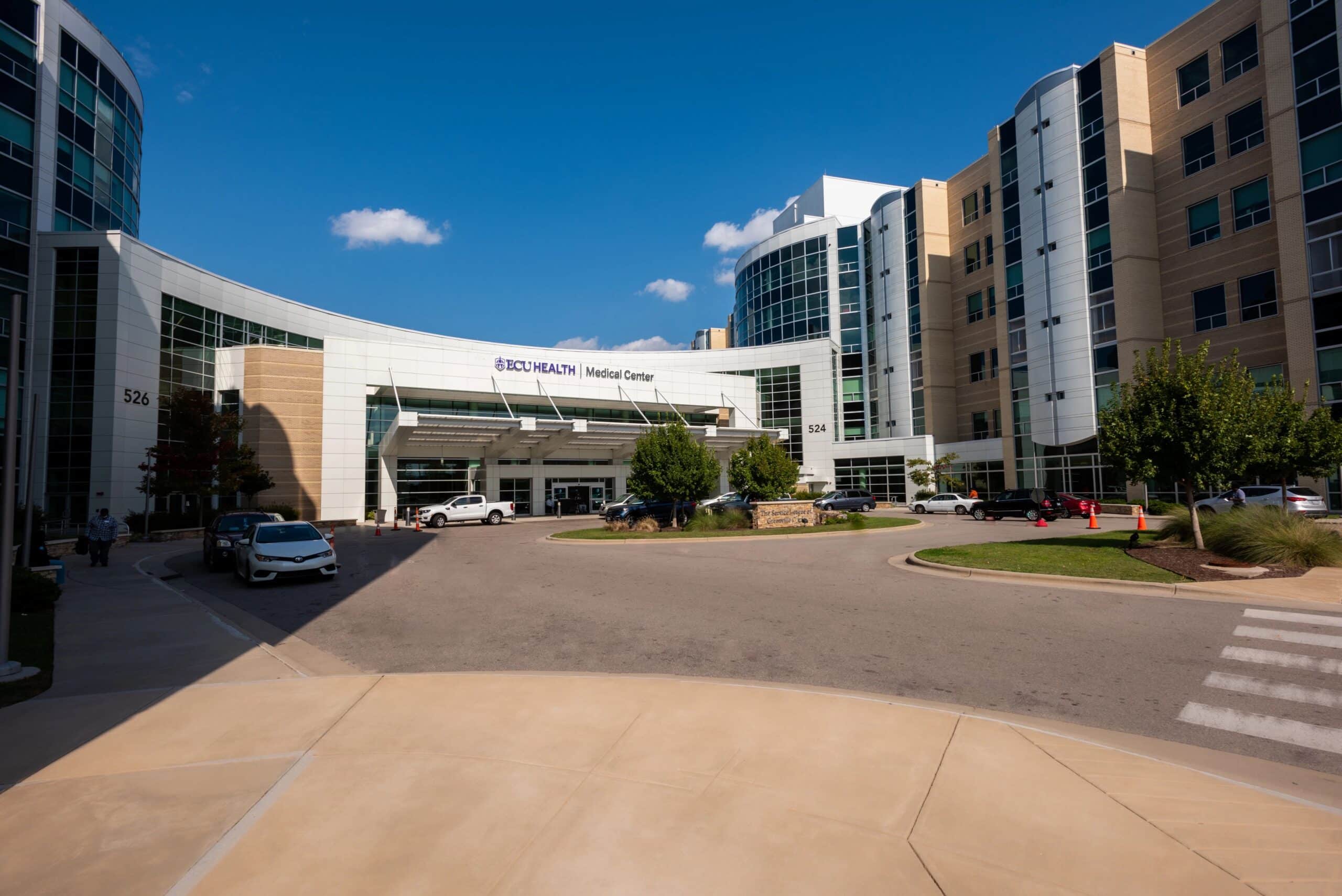
As a CoC-accredited cancer center, ECU Health Medical Center applies a multidisciplinary approach and treats cancer as a complex group of diseases that requires consultation among surgeons, medical and radiation oncologists, diagnostic radiologists, pathologists, and other health care professionals that specialize in caring for cancer patients. Cancer patients benefit from having access to clinical trials, screening and prevention events, palliative care, genetic counseling, rehabilitation, oncology nutrition, and survivorship services.
“Eastern North Carolina faces a disproportionately high rate of cancer, and as the largest health care provider in the East, ECU Health is committed to maintaining excellence in the delivery of comprehensive, compassionate, patient-centered, high-quality care for patients with all types of cancer,” said Dr. Darla Liles, Cancer Committee chair at ECU Health, professor and chief of the Division of Hematology and Oncology at the Brody School of Medicine at East Carolina University. “This accreditation demonstrates our holistic approach to cancer care that includes preventive measures, educational resources, clinical trials, support and survivorship services and treatment with the latest technologies and highest clinical standards.”
According to the American Cancer Society, more than 1.9 million new cancer cases and approximately 609,820 deaths from cancer are expected in 2023 in the United States. Of those, 67,690 new cases are expected in North Carolina. Residents in eastern North Carolina have access to ECU Health’s cancer care network that spans across nine hospitals – including the Eddie and Jo Allison Smith Tower at ECU Health Medical Center in Greenville that is home to both inpatient and outpatient cancer services – five radiation oncology sites, three joint ventures and numerous outpatient clinics.
“The Commission on Cancer brings together experts and advocates from across the country to develop standards for cancer care so that patients with cancer receive the highest quality care coordinated by a team of dedicated physicians and specialists,” said Timothy Wm. Mullett, MD, MBA, FACS, professor, general thoracic surgery medical director, Markey Cancer Center Affiliate and Research Networks University of Kentucky, and chair of the Commission on Cancer.
Greenville, N.C. – The National Accreditation Program for Breast Centers (NAPBC), a quality program administered by the American College of Surgeons, has granted accredited status to ECU Health Medical Center for the ninth year. Patients receiving care at a NAPBC-accredited center have access to information on clinical trials and new treatment options, genetic counseling, and patient-centered services including psychosocial support, rehabilitation services and survivorship care.
“ECU Health serves a vast rural region burdened by high prevalence of chronic diseases including cancer,” said Brian Floyd, chief operating officer of ECU Health and president of ECU Health Medical Center. “Our partnership with the Brody School of Medicine at East Carolina University allows us to provide research and clinical trials for patients, as well as recruit high-quality cancer care providers, both of which largely contribute to our accreditation. Bringing standardized, quality care close to home for the 1.4 million people we serve helps us meet our mission of improving the health and well-being of eastern North Carolina.”
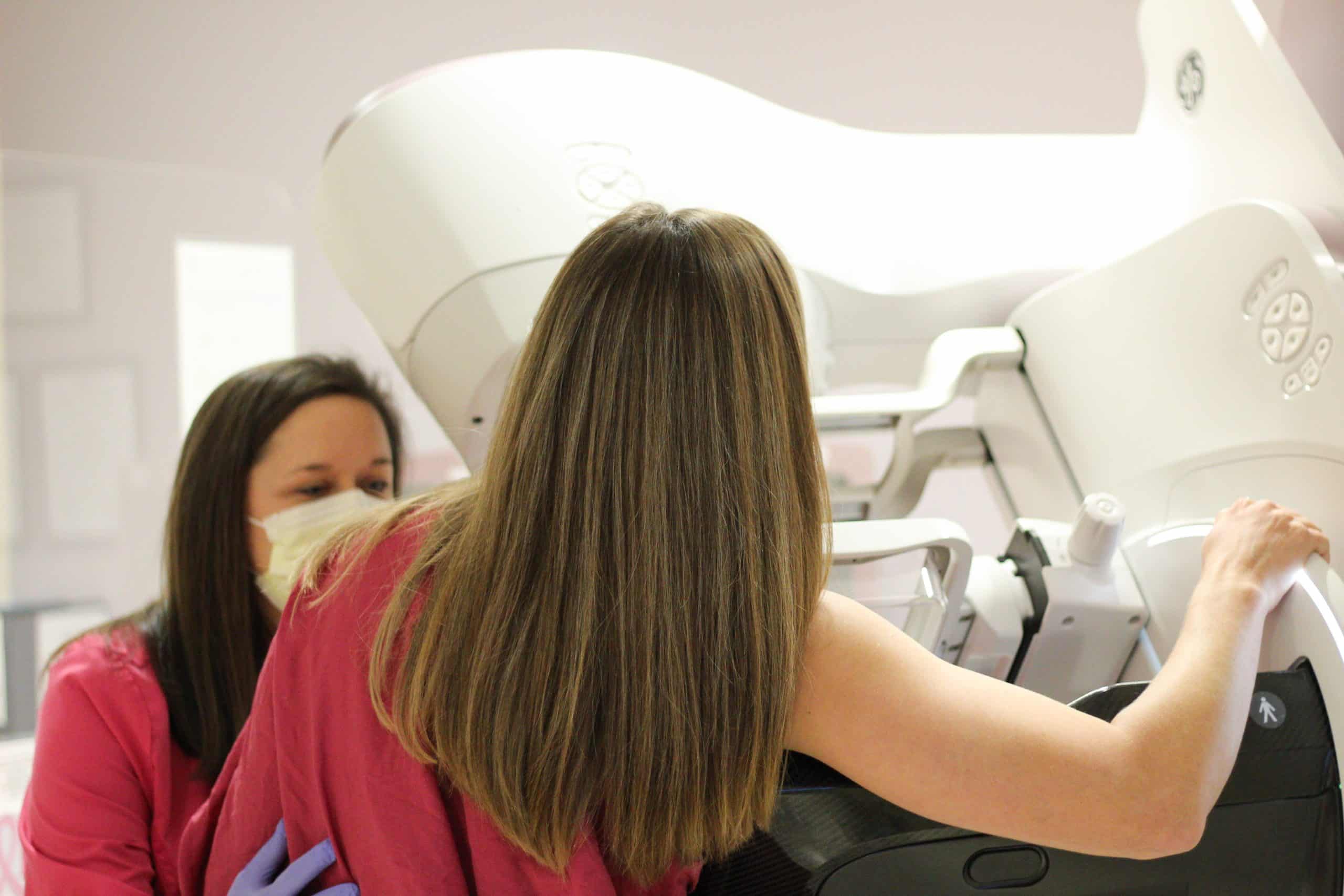
Breast cancer is the second leading cause of cancer deaths for women in North Carolina, according to the North Carolina Department of Health and Human Services. The even higher prevalence of cancers in eastern North Carolina highlights the importance of having an accredited cancer care center in the region. Access to preventative screenings and early detection allows for less invasive treatments, a greater variety of options and a greater potential to prevent the spread of breast cancer.
“ECU Health is committed to maintaining excellence in the delivery of comprehensive, compassionate, patient-centered, high-quality care for patients with all types of cancer,” said Dr. Emmanuel Zervos, executive director of cancer services at ECU Health, and professor at the Brody School of Medicine at ECU. “Patients with breast cancer at ECU Health benefit from a robust team of disease site specialists in surgery, oncology and radiotherapy who are committed to working together to provide the type of care this important designation represents. I am grateful to our ECU Health team members and new breast cancer program leader, Dr. Karinn Chambers, for not only adhering to these standards but surpassing them.”
Accreditation by NAPBC is granted to programs proven to provide the best possible care to patients with breast cancer. To achieve voluntary NAPBC accreditation, a breast center demonstrates compliance with the NAPBC standards that address a center’s leadership, clinical services, research, community outreach, professional education and quality improvement for patients. Breast centers seeking NAPBC accreditation undergo a site visit every three years.
To learn more about breast cancer screenings and treatment options near you, please visit ECUHealth.org/breast-cancer.
